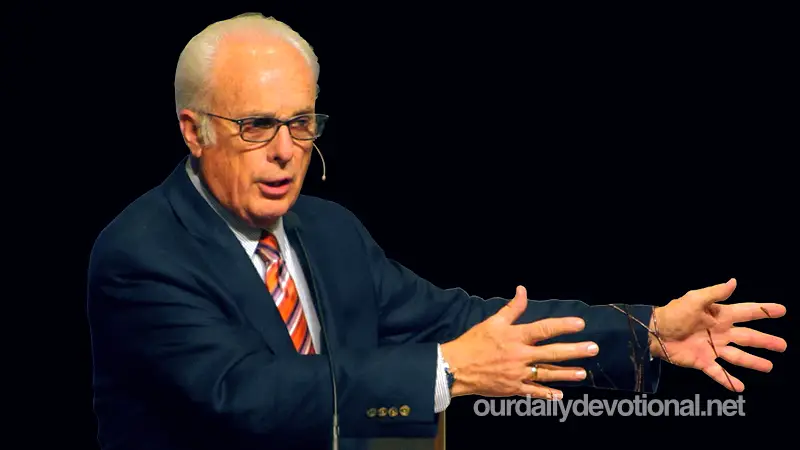Although Amos and Hosea were prophets at the same time, and although both prophesied about the sins of Israel, there is a great difference between their styles.
Hosea is more fervent, stirred by righteous indignation against the sins of the people, while Amos calmly presents his declaration of God's judgments.
Hosea's prophecy is limited to the sins of Judah and Israel, while Amos tells us of the judgments that were to fall on the neighboring nations that had harmed Israel, especially those that retained any part of the land that had been destroyed. been promised to Abraham; Next he denounces not only the sins of Judah, a nation to which he himself belonged, but also of Israel; and furthermore he dwells more on Israel than on Judah.
In the heading we have these words: "The Lord will roar out of Zion, and will shout his voice from Jerusalem," which are also found in Joel 3:16. Thus, he picks up where Joel leaves off.
In the first two chapters appear eight short proclamations of judgment, introduced by the words "for three sins... and for the fourth." Three witnesses served to give adequate testimony; Four is the overflowing of the cup, to which the four cardinal points of the earth can bear witness. The lawsuits are proclaimed against:
(a) Syria, represented by Damascus, its capital;
(b) the Philistines, represented by Gaza;
(c) Shooting;
(d) Edom;
(e) Amun;
(f) Moab;
(g) Judah;
(h) Israel.
Chapter 3 speaks of Judah and Israel, "against the whole family" (Am. 3:1), thus counting it as a unity, even when division had occurred; Then follows the solemn affirmation that this was the only family that God had known among all those on earth (Am. 3:2), the only one that he had introduced into relationship with himself. Therefore God would punish them for all their evils.
This shows that responsibilities are weighed in relation to the privileges that have been received. Although judgments would come, a remnant would remain, as when a shepherd recovers from a lion "two legs, or the tip of an ear"; indeed, a very small remnant! (Am. 3:12).
Chapter 4 is directed against Israel, especially because they had oppressed the poor. God had cast minor judgments on them, such as:
(a) Scarcity, "clean teeth."
(b) Drought due to retention of rain, sent upon one city, but not upon another.
(c) East wind and pests on crops.
(d) Mortality and stench, their young men being killed by the sword.
(e) They were upset like Sodom and Gomorrah, some being saved like brands escaped from the fire. After each trial the result is mentioned: "but you did not return to me, says the Lord", ending with "prepare to meet your God, O Israel... The Lord God of hosts is his name."
In chapter 5 we have additional denunciations against Israel, but she is exhorted to seek the Lord. There were those who longed for the day of the Lord, but that day will be one of darkness and judgment. Such was their iniquity that God hated and despised their assemblies and their offerings; in reality, they had become idolatry.
Chapter 6 constitutes a denunciation against those who are lounging in Zion and Samaria, living in luxury and pleasure, in false confidence, despite all the warnings that had been given to them.
Chapters 7, 8 and 9 are visions, and the application they have. Chapter 7 exhibits the patience of Jehovah. The prophet intercedes for Jacob, and Jehovah repents of the evil he was going to bring upon them; but judgment must come.
The declaration of judgment on the high places displeased Amaziah, the priest of the false religion at Bethel, who was living comfortably. He advised Amos to flee to Judah.
But Amos replied that he was neither a prophet nor the son of a prophet, but only a herdsman, and that Jehovah had sent him. Judgments would fall on Amaziah and Israel would be taken into captivity. Again chapter 8 denounces Israel especially for its laziness and oppression of the poor.
Chapter 9. No one would escape the penetrating eye of God or his judgment. He was going to destroy them from the face of the earth, but not "entirely"; a remnant would be saved (Am. 9:9).
Restoration and final blessing are promised (Am. 9:11-15). He who plows will overtake him who reaps; The mountains will drip new wine. The captives will return. God will plant them in his land and they will no longer be uprooted. They are promises that still await their fulfillment, because it has not yet occurred. God will fulfill it in his time.
Review of criticism.
The text of Amos has been transmitted in excellent condition. However, the authenticity of many passages has been called into question (especially Am. 2:4, 5; 4:13; 5:8, 9; 9:5, 6 and 8 b-15).
Against the authenticity of Am. 2:4, 5 it has been alleged:
(a) that the substance and form are reminiscent of Deuteronomy;
(b) that the accusations against Judah are commonplace, in contrast to the personal tone of the accusations against the other nations. However,
(1) The reproaches made by Deuteronomy, the rejection of the law of the Lord, the non-observance of His statutes, and idolatry are also found in the writings contemporary with Amos and those before him (Ex. 15:26; 18:16 ; Isa. 5:24; Hos. 2:7, 15; 4:6).
(2) As for the accusation leveled against Judah, it is in the form of the other denunciations. It is also precise, since disobedience to the commands of the Lord and idolatry are constantly specified in the pages of the prophets.
(3) The two verses of Am. 2:4-5 nor the accusation against Judah cannot be deleted without changing the line of thought, and without interrupting the transition. (See Driver, “Joel and Amos,” p. 117; Vos, Revelation, IX, 226, Press. & Reformed.)
The three passages of Am. 4:13; 5:8-9 and Am. 9:5-6 speak of the Lord. He rejects them with these allegations:
1. That the theological doctrine enunciated in these verses is not the dominant one in Hebrew literature before the exile.
2. That the cries of praise to the glory of the Almighty God are found in the style of the last section of Isaiah (Is. 40-66).
3. That two of these passages (Am. 4:13 and 9:5-6) are not closely linked to the context, and that what the passage of Am. 5:8-9 does is interrupt the train of thought .
To all this must be replied:
1) It is true that these passages could be deleted without the reader finding them missing; but it is also true that this could be done with a large number of passages whose authenticity is not in question.
These three passages intensify the prediction of judgment, by proclaiming the transcendent greatness of the One who punishes (Vos, work cit, p. 227).
2) The exclamatory form of the appeal, particularly in the criticized passages of this prophetic speech, "is not surprising, given the general rules of the art of prophetic oratory" (quote from Robertson Smith in Driver).
3) The doctrine of the sovereignty of the Lord over nature is in correspondence with the teaching of Amos in other passages (Am. 4:7 ff.; 7:1, 4; 9:3; Driver).
Let us add that this doctrine is also in correspondence with the teaching prior to the prophecy of Amos (e.g., Gen. 2-8; 11; 18; Ex. 7:14).
It has also been argued that the optimistic promises with which the book concludes (Am. 9:8 b-15) cannot be the personal conclusion of Amos or his vision of punishment, since this conclusion differs from the rest of his prophecy by the style, ideas and perspective of the future.
But it is immaterial whether Amos wrote these conclusions immediately after finishing the account of his visions, or later.
The authenticity of these conclusions cannot be refuted. Prophets frequently add a positive prophecy to their predictions of judgment.
The pious were in need of encouragement, and evidence was to be given of the harmony between the impending judgment and the ancient divine promise regarding the stability of David's throne, the perpetuity and triumph of the kingdom of God on earth.
Meaning of AMOS (Book)
Although Amos and Hosea were prophets at the same time, and although both prophesied about the sins of Israel, there is a great difference between their styles.







